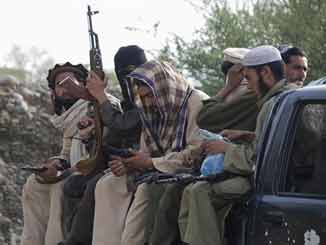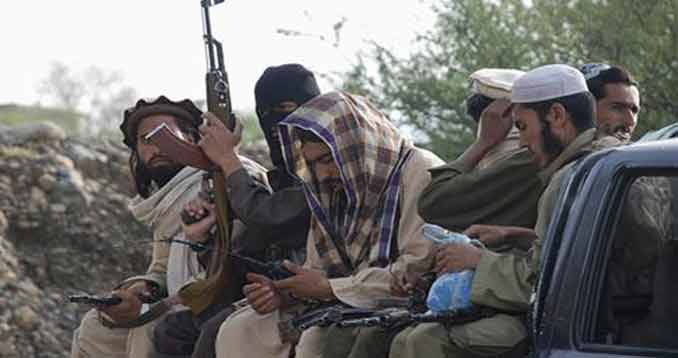

Hasht-E Subh It appears that the Taliban’s agreement with the government of Pakistan to transfer members of the Tehreek-e-Taliban Pakistan (TTP) to the north and northeast of Afghanistan has started. Reports from Northeast Afghanistan state that the first groups of TTP have been moved to the surrounding district of Kokcha of Takhar province and this program is probably being implemented in other provinces as well. However, the Taliban have realized that the plan to relocate TTP members and their families in the north and northeast is not simple and will face obstacles, thus taking precautions for the full implementation of this program. The assassination of the Tajik Taliban in Badakhshan and the trip of Sirajuddin Haqqani, the Taliban Minister of the Interior, to the north, which is said to have mostly met with Pashtun elders, is part of the efforts to prepare the ground for the transfer of the Pakistani Taliban to this part of the country.
Change of Ethnic Demography
The Taliban’s goal of transferring TTP to the northern provinces is not only simply keeping Pakistan satisfied and not upsetting TTP members, but it is the continuation of the unfinished plan of the past ethnocentric rulers to change the ethnic structures with the approach of Pashtunization of these regions, which started with the compilation of the Nizamnama-e-Naqilin “relocation regulation” during the era of Amanullah Khan and continued in the following regimes. However, this program was never implemented according to the wishes of the Pashtun nationalists’ rulers due to the political dynamics, remaining unaccomplished. Now that the Taliban are back, they are trying to implement this program with much force.
The transfer of TTP members (tribal Pashtuns) or the program of Pashtunization of the North has many advantages for the Taliban. If this plan does not lead to a serious reaction from the indigenous people of the North and Northeast, it will not be confined to the relocation of a few thousand Pakistani Taliban, but by accelerating this program, the Taliban will pursue a goal that no autocratic Pashtun ruler has ever been able to achieve, which is a fundamental change in the ethnic structures of the northern and northeastern provinces. This program will be implemented in the central and western regions as well, which will contribute to fulfilling the dream of Pashtun chauvinism. If the Pashtun relocation program in the north is implemented as planned, it will eventually lead to the cleansing of the native inhabitants of the north. This will be carried out either through the forceful displacement of non-Pashtun ethnic groups or in the best case, the conditions will be set in such a way that these ethnic groups will have no choice but to migrate en masse, apparently voluntarily.
Suppression of Popular Resistance
Another goal that the Taliban pursue through the transfer of TTP members in northern Afghanistan is to use this group in the war against potential popular resistance in the future. If the Taliban implement the plan to transfer the TTP to the north, they will probably face resistance from the natives of the northern provinces, which the Taliban have predicted. They are extremely vulnerable in the northern and northeastern regions due to a lack of the popular base that they have in the south and east of Afghanistan.
With the expansion of popular resistance against the Taliban, relying on terrorist groups, including the TTP, is a ready and available option for the Taliban. These groups, which have gained huge facilities and privileges under Taliban rule, will not have any supporters in the absence of this group and will be severely suppressed. Therefore, they will fight to their last breath in support of the Taliban emirate in Afghanistan. According to reports, the Taliban have previously used foreign terrorist groups, including the Al-Qaeda network, to confront the resistance front.
A New Proxy War Front Against Russia
The transfer of TTP members in the northern provinces can be the main part of the proxy war of the West against Russia in Central Asia. The Russians are currently embroiled in Ukrainian soil and the losers and the winner are yet to be known. The government of Kyiv is still standing with the unwavering support of the West and is even fighting to take back its lost areas. The Westerners have openly said that their goal is to defeat Russia in this war, and as long as Russian President Vladimir Putin does not stop his aggression and invasion, they will continue to support the Ukrainian government. While the Westerners are trying to deter Putin, it is not unrealistic to hypothesize that the Americans would like to initiate a new war front against Russia in order to further weaken this country’s military power and eventually force Putin to capitulate regarding the issue of Ukrainian.
The recent comments of the top Russian officials, from President Putin to Foreign Minister Sergei Lavrov and Defense Minister Sergei Shoigu, serve as evidence that the Americans are opening a new proxy front in Central Asia (the private zone of Russia). In one of his very explicit comments, Lavrov accused the United States of supporting Al-Qaeda and Islamic State-Khorasan (ISS-K) in Afghanistan. Shoigu also accused the United States of attempting to make the region insecure by using militias in Afghanistan and even talked about the transfer of terrorists from the Middle East to Afghanistan. The spokesperson of the Russian Ministry of Foreign Affairs had previously claimed that the United States had deliberately left its weapons and military equipment in Afghanistan in order to use them to destabilize the countries of the region. According to him, these weapons may fall into the hands of terrorist groups.
The Russians know the Americans’ and Westerners’ schemes for Russia. From the explicit comments of senior Russian officials, it can be understood that the government of this country is seriously monitoring the activities of terrorist groups in the north and northeast of Afghanistan and has taken the threat seriously. If the terrorist groups active in the north and northeast, including TTP, start threatening activities against Central Asian countries, they will face the common anger of the Collective Security Treaty Organization (CSTO), as a result, the northern and northeastern provinces will become the focus of war and violence. The main victims of such a situation are the natives of these areas, who are already harmed under the rule of the Taliban.
Destructive Consequences of Ethnic Politics
The diverse ethnic structure of the North and Northeast in Afghanistan’s politics, which is often ethnocentric and one-sided, is not only not considered a democratic privilege, but it is also a source of tension and war. In the U.S.-backed governments, a number of government officials supported the Talibanization process in these regions in order to subjugate their political rivals in the north and northeast. The non-governmental nationalists, especially through the media, tried to justify the crimes of the Taliban and considered Afghan Local Police (ALP) as the cause of the war in the north and northeast. It is undeniable that ALP was involved in crime, extortion, drug trafficking, and public harassment and was one of the factors of war and crime in the north. However, the government and non-government nationalists supported the Taliban openly and confidentially against the ALP, who, at least, were supported by the government, and we are seeing the result now.
The significant silence of Pashtun nationalists against the plan to transfer the Pakistani Taliban to the north shows that they are satisfied with this plan and want to see how successful the Taliban are in this task. The Pashtunization of the North, which is now accompanied and coordinated with the Talibanization of life, will not only benefit the Pashtuns in the long run, but this program will lead to the intensification of ethnic conflicts, the widening of the current crisis, and even the disintegration of Afghanistan, in which the Pashtuns, like other relatives living in the country, will suffer. In addition, the Pashtunization of the North, which the Taliban is now implementing, will lead to the promotion of Islamic extremism and the institutionalization of violence and terrorism among the Pashtuns.
The plan to transfer TTP to northern Afghanistan can only benefit the Taliban and the regional and global actors supporting this group, not the Afghans. The result of this program will solely promote Islamic extremism and desert thoughts, the continuation of the cycle of violence and terrorism, the intensification of ethnic and linguistic conflicts, and the increasing wave of mass migrations to neighboring countries.

Leave a Reply